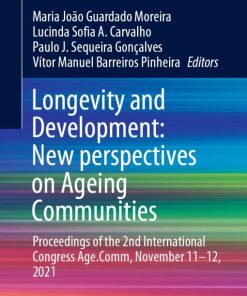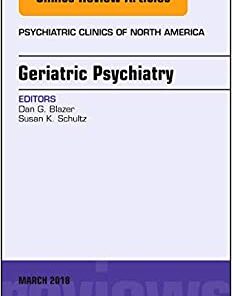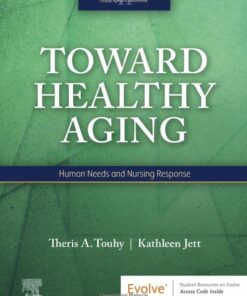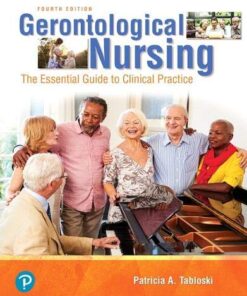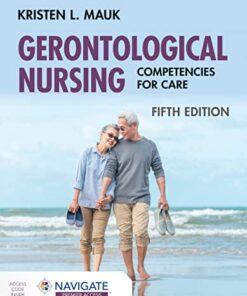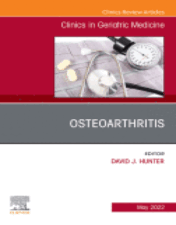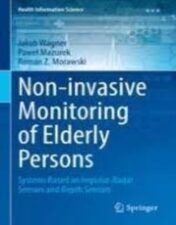Discover the Best Geriatrics Books to Enhance Your Knowledge of Aging
Discover the Best Geriatrics Books Now!
Are you looking for the best geriatrics books to help you understand the aging process and how to care for elderly patients? Look no further than GERIATRICS BOOKS Our selection of geriatrics books covers a wide range of topics, from basic anatomy and physiology to advanced clinical management. Whether you’re a student or a professional, you’ll find the perfect book to help you gain a better understanding of geriatrics. With our easy-to-navigate website, you can quickly find the right book for your needs. Plus, we offer free shipping on all orders over $50! Don’t wait any longer – explore our selection of geriatrics books today and start learning more about this important field.
GERIATRICS BOOKS
GERIATRICS BOOKS
Longevity and Development: New perspectives on Ageing Communities (Original PDF from Publisher)
GERIATRICS BOOKS
GERIATRICS BOOKS
GERIATRICS BOOKS
Oral Health and Dental Care in the Ageing Population (BDJ Clinician’s Guides) (EPUB)
GERIATRICS BOOKS
Toward Healthy Aging: Human Needs and Nursing Response, 11th Edition (Original PDF from Publisher)
GERIATRICS BOOKS
Conducting Wellness Groups for Veterans and Older Adults (Original PDF from Publisher)
GERIATRICS BOOKS
Conducting Wellness Groups for Veterans and Older Adults (EPUB)
GERIATRICS BOOKS
GERIATRICS BOOKS
Gerontological Nursing: Competencies for Care, 5th Edition (Original PDF from Publisher)
GERIATRICS BOOKS
GERIATRICS BOOKS
Betreuungsassistenz: Lehrbuch für Demenz- und Alltagsbegleitung, 3rd Edition (EPUB3)
GERIATRICS BOOKS
GERIATRICS BOOKS
GERIATRICS BOOKS
Clinics in Geriatric Medicine Osteoarthritis May (Volume 38, Issue 2) Original pdf 2022
Introduction
Are you looking to enhance your knowledge of aging and geriatrics? Look no further than our list of the best geriatrics books! From comprehensive guides to specialized topics, these books provide a wealth of information on the physical, mental, and social aspects of aging. Whether you're a healthcare professional or simply interested in learning more about geriatrics, these books are sure to help you gain a better understanding of this important field. With expert advice from leading authors, you can be sure that you're getting the most up-to-date and accurate information available. So, start exploring today and discover the best geriatrics books to enhance your knowledge of aging!
Understanding the Aging Process: Exploring the Physical and Mental Changes of Growing Older
Caring for Elderly Patients: Strategies for Providing Quality Care
Caring for elderly patients is a challenging yet rewarding task. Providing quality care to elderly patients requires a special set of skills and strategies that are tailored to meet the unique needs of this population. Quality care for elderly patients should focus on providing physical, emotional, and social support while also addressing any medical issues that may arise.
The first step in providing quality care for elderly patients is to create an individualized plan of care. This plan should be based on the patient’s specific needs and preferences and should include both short-term and long-term goals. It is important to involve the patient and their family in the development of the plan so that everyone is on the same page and understands the expectations.
Once the plan of care has been established, it is important to ensure that the patient is receiving the necessary medical care. This includes regular check-ups with their primary care physician, as well as any specialists they may need to see. It is also important to monitor the patient’s medications and make sure they are taking them as prescribed.
In addition to medical care, it is important to provide emotional and social support to elderly patients. This can include spending time talking with them, listening to their concerns, and helping them stay connected to their friends and family. It is also important to provide activities that will help keep them engaged and active. This could include going for walks, playing games, or engaging in other activities that they enjoy.
Finally, it is important to be aware of any changes in the patient’s condition and to respond quickly if there are any signs of decline. This could include changes in appetite, sleep patterns, or behavior. If any changes are noticed, it is important to contact the patient’s doctor right away.
Providing quality care for elderly patients requires patience, understanding, and compassion. By following these strategies, caregivers can ensure that their elderly patients receive the best possible care.
Managing Chronic Conditions in the Elderly: A Guide to Effective Treatment
Managing Chronic Conditions in the Elderly: A Guide to Effective Treatment is an invaluable resource for healthcare professionals, caregivers, and family members of elderly individuals with chronic conditions. This comprehensive guide provides a comprehensive overview of the most common chronic conditions affecting the elderly population, including diabetes, heart disease, arthritis, Alzheimer’s disease, and more. It also offers practical advice on how to effectively manage these conditions, from lifestyle modifications to medication management.
The guide begins by discussing the importance of understanding the unique needs of the elderly population when it comes to managing chronic conditions. It explains why it is important to recognize the physical, mental, and emotional changes that can occur as a result of aging, and how these changes can affect the way chronic conditions are managed. It also provides information on the various types of treatments available for each condition, including medications, lifestyle modifications, and alternative therapies.
The guide then goes into detail about the different types of medications used to treat chronic conditions in the elderly. It discusses the benefits and risks associated with each type of medication, as well as how to properly monitor their use. It also provides tips on how to ensure that medications are taken correctly and safely.
The guide also covers the importance of lifestyle modifications in managing chronic conditions in the elderly. It explains how diet, exercise, and stress management can help improve overall health and reduce the risk of complications from chronic conditions. It also provides information on how to create a supportive environment for elderly individuals with chronic conditions, such as providing access to social activities and support groups.
Finally, the guide provides information on how to effectively communicate with healthcare providers and family members about the care of elderly individuals with chronic conditions. It explains how to discuss treatment options, provide support, and ensure that all parties involved understand the importance of following through with treatment plans.
Managing Chronic Conditions in the Elderly: A Guide to Effective Treatment is an essential resource for anyone caring for an elderly individual with a chronic condition. It provides valuable information on how to effectively manage chronic conditions in the elderly, from lifestyle modifications to medication management. With this guide, healthcare professionals, caregivers, and family members can ensure that elderly individuals with chronic conditions receive the best possible care.
End-of-Life Care for the Elderly: Navigating the Challenges of Death and Dying
Financial Planning for Retirement: Preparing for a Secure Future
Retirement is a time of life when individuals can finally enjoy the fruits of their labor and relax after years of hard work. Financial planning for retirement is essential to ensure that you have enough money to live comfortably during your golden years. Retirement planning involves setting goals, assessing your current financial situation, and creating a plan to reach those goals.
The first step in financial planning for retirement is to set realistic goals. Consider how much money you will need to maintain your desired lifestyle in retirement. Think about what type of lifestyle you want to lead, such as traveling or staying close to home. Also consider any medical expenses you may incur in retirement. Once you have determined your goals, you can begin to assess your current financial situation.
Next, you should review your current income sources and expenses. This includes wages, investments, Social Security benefits, pensions, and other sources of income. You should also consider any debts you may have, such as credit card debt or student loans. Once you have a clear picture of your current financial situation, you can begin to create a plan to reach your retirement goals.
When creating a retirement plan, it is important to consider both short-term and long-term goals. Short-term goals may include saving for a down payment on a house or car, while long-term goals may include saving for retirement. It is also important to consider the types of investments you make. Investing in stocks, bonds, mutual funds, and other securities can help you build wealth over time.
Finally, it is important to review your retirement plan regularly. As your financial situation changes, so should your retirement plan. Make sure to adjust your plan accordingly to ensure that you are on track to reach your retirement goals.
Financial planning for retirement is an important part of preparing for a secure future. By setting realistic goals, assessing your current financial situation, and creating a plan to reach those goals, you can ensure that you have enough money to live comfortably during your golden years.
Conclusion
In conclusion, geriatrics books are a great way to enhance your knowledge of aging. Whether you’re looking for an introduction to the field or a comprehensive guide to the latest research and treatments, there is a book out there that can help you gain a better understanding of the aging process. With so many options available, it can be difficult to know which books are the best. To make your search easier, we’ve compiled a list of the top geriatrics books to help you discover the best one for your needs. We hope this list has been helpful in finding the perfect book to help you learn more about geriatrics and aging







